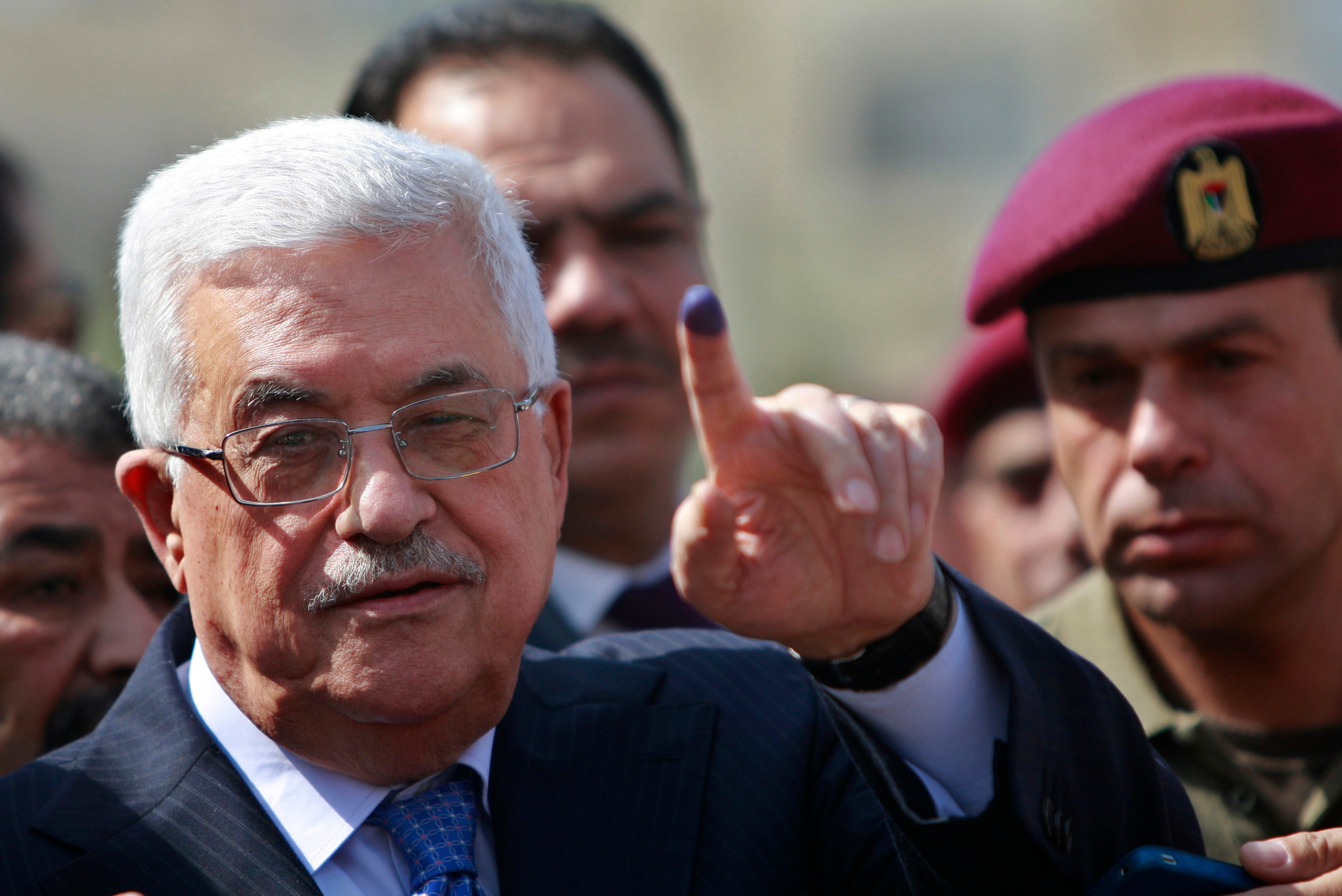Palestinians to discuss delaying vote over Jerusalem dispute
The Palestinian leadership will convene later this week to discuss whether to postpone next month’s elections if Israel does not allow voting in east Jerusalem

Your support helps us to tell the story
From reproductive rights to climate change to Big Tech, The Independent is on the ground when the story is developing. Whether it's investigating the financials of Elon Musk's pro-Trump PAC or producing our latest documentary, 'The A Word', which shines a light on the American women fighting for reproductive rights, we know how important it is to parse out the facts from the messaging.
At such a critical moment in US history, we need reporters on the ground. Your donation allows us to keep sending journalists to speak to both sides of the story.
The Independent is trusted by Americans across the entire political spectrum. And unlike many other quality news outlets, we choose not to lock Americans out of our reporting and analysis with paywalls. We believe quality journalism should be available to everyone, paid for by those who can afford it.
Your support makes all the difference.The Palestinian leadership will convene later this week to discuss whether to postpone next month's elections if Israel does not allow voting in east Jerusalem where days of violence have ratcheted up tensions.
Palestinian Prime Minister Mohammad Shtayyeh said at a Cabinet meeting Monday that the leadership would discuss the elections on Thursday, when representatives of all the main factions are set to meet.
Palestinian President Mahmoud Abbas whose Fatah party is riven with divisions and expected to perform poorly in the May 22 parliamentary elections, could cite Jerusalem as a reason for delaying or cancelling the vote. That would be welcomed by Israel and much of the international community, which fears the militant Hamas movement will gain power and influence in the election.
Israel captured east Jerusalem in the 1967 war and annexed it in a move not recognized internationally. Israel views the entire city as its unified capital and bars the Palestinian Authority from operating there. The Palestinians want east Jerusalem to be the capital of their future state. Israel has not yet said whether it will allow voting there.
Under interim peace agreements reached in the 1990s, some 6,000 Palestinians in east Jerusalem are allowed to submit ballots through Israeli post offices, which requires Israel's permission. The rest of the 150,000 Palestinian voters in the city can cast ballots with or without Israel's permission, according to the Palestinian elections commission.
Those 6,000 voters are unlikely to be decisive in an election in which 2.5 million Palestinians are eligible to cast ballots in the Israeli-occupied West Bank and Gaza. But their participation has great symbolic importance. Many Palestinians believe that holding the elections without them amounts to recognizing Israel's claims to the city.
At a Fatah meeting held Sunday night, Abbas called Jerusalem a “red line," saying he would not accept holding general elections without the full participation of its residents. He called on the international community to pressure Israel to allow the elections to be held in the city.
But delaying or cancelling the elections could prove controversial. Nour Odeh, a parliamentary candidate for a rival list, tweeted that calling them off would be “an attempt to make the status quo of stagnation & internal failure permanent.”
“Using Jerusalem as an excuse is also cynical. Israel must not (have) veto power over our right to hold elections. This is a battle we must fight and win!” she wrote.
The issue has grown even more fraught in recent days as Israeli police have clashed with Palestinian worshippers over restrictions on gatherings imposed during the Muslim holy month of Ramadan. Palestinian militants in the Hamas-ruled Gaza Strip have fired dozens of rockets in recent days in support of the protests, raising the prospect of wider outbreak of violence.
In January, Abbas decreed that parliamentary elections should be held May 22, following by a presidential election on July 31. They would be the first since 2006, when Hamas won a landslide victory in parliamentary elections. That sparked an internal crisis culminating in the militant group's violent seizure of Gaza from Abbas' forces the following year.
Since then, the Palestinians have been split by rival authorities, with Hamas ruling Gaza and Abbas' authority limited to parts of the Israeli-occupied West Bank.